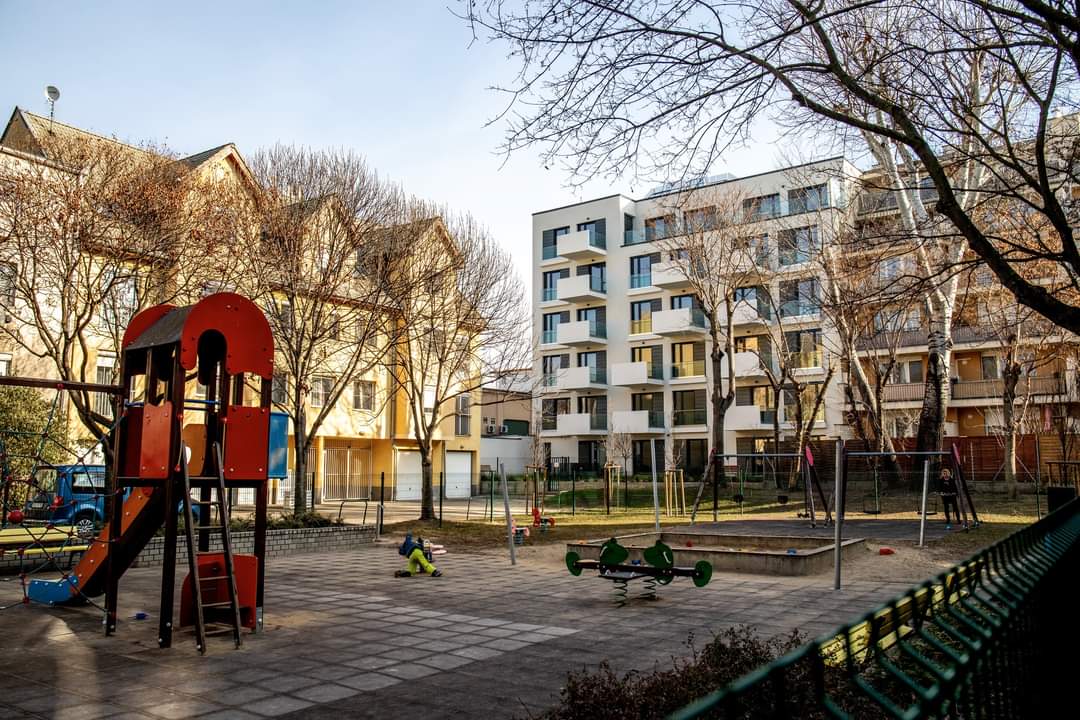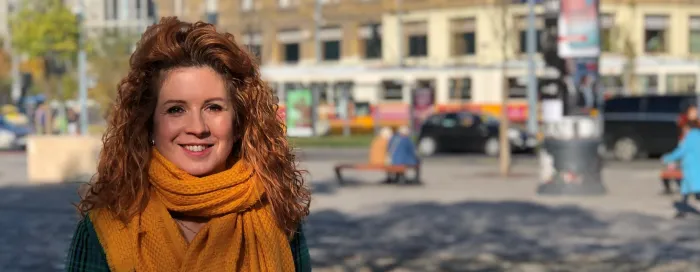Why is your city a progressive city when it comes to housing policies?
Making decent housing for all a reality is one of the priorities of our city. Adopted in June 2022, Budapest's 2022-2031 Home, for Everyone strategy reframes the issue of homelessness into call for more affordable housing to prevent the problem.
The title of the strategy is a reference to the city’s Integrated Urban Development Strategy, entitled At home in Budapest, which also stressed the need to extend the affordable housing sector.
We must recognise that homelessness is not - and cannot be - solved by homeless services alone. We have to realise that the moral and social policy challenge cannot be described in terms of how many beds there are in the capital's shelters. We need to understand that the more important question is how the income of the poorest city dwellers compares with the cost of housing.

The strategy was developed according to the following principles:
- a shift in mindset: in contrast to the predominant policy approach of the last three decades, which has largely been limited to providing and funding shelters and various services for people who are already homeless, much more attention needs to be paid – and resources allocated – to preventing homelessness, and to providing affordable housing for those who are homeless. Providing housing for homeless people and families should not be seen as the final outcome of a social inclusion process, but as a condition for social inclusion that also underpins and facilitates the management and resolution of other problems that homeless people and families might face, such as health and labour market problems;
- evidence-based policy making: the formulation of the strategy involved collecting and processing a wide range of available statistical, administrative and research data in Hungary. For some key areas where available data was not available, not sufficient or up to date, the strategy relies on its own exploratory data collection. These data collections were also used to facilitate the participation of social workers working with homeless families or in outreach programs;
- stakeholder participation: people experiencing homelessness actively participated in the development of the strategy through several open forums organised in shelters and daytime centres, and through a committee of experts. Social workers were also invited to share their experiences and recommendations in a variety of workshops and consultations.
With these principles in mind, the four overarching goals of the strategy include strengthening prevention, provision of affordable housing, a decrease in rough sleeping and dignified assistance in shelters.
The strategy builds on the Integrated Urban Development Strategy and on the implementation and promotion of the programmes of the Territorial and Settlement Development Operative Programme that have been planned:
- in particular the Housing Guarantee scheme, which would provide affordable housing for specific groups of homeless people through the provision of rent subsidies (and, where appropriate, related social services) (ESF, HUF 7.4 billion). In view of the informality and housing insecurity that characterises the private rental sector, this is linked to the programmes for the creation of a social rental housing agency (supported by the ESF, HUF 1.5 billion; and by the ERDF, HUF 8.5 billion, which will be used for the renovation of the existing housing stock,);
- the Complex health, social and labour market support (ESF, 4.2 billion HUF) programme, and
- to a lesser extent, mainly in relation to professional and human resources development of homelessness-related social and child welfare services, for the Social Services Capacity Building (ESF, HUF 6.9 billion) programme.
Since the strategy relies heavily on funds from the European Union, its implementation is highly dependent on the availability of these funds – in the context of heated legal and political debates between Hungary’s central government and the European Commission.
From a prevention perspective, the strategy pays particular attention to preventing young people leaving institutional care from becoming homeless and to protecting victims of intimate partner and domestic violence.
To this end, the municipality will provide funds for the development of municipal and other services to prevent homelessness in the city’s 23 districts through the Metropolitan Solidarity Fund and the Metropolitan Social Public Foundation, and is also launching a debt management programme to deal with the significant rent arrears in the municipal rental sector that have accumulated over many years.
Finally, Budapest will examine how it can most effectively provide rapid, flexible legal and social support to residents in acute housing crisis situations, as Barcelona or Helsinki do.

Budapest also focuses on making housing more sustainable. Can you share with us a successful initiative that you put in place?
In the Budapest 13 district, in Jász street, the Council created energetically modern social housing buildings with own funding of HUF 2.3 billion (EUR 7 million). The new buildings have the best available technologies built in for preventing heat loss and maximising heat gain, using the building's inner heat sources. This project received passive house certification for a building containing 100 apartments. Its energy consumption is 84% lower than conventional houses. The project will enable low income families to be able to pay their bills and the municipality social welfare aid will be dedicated to other more relevant costs for the families.
The new building has a very high energy efficiency (up to 84% less energy than conventional housing) and saves on GHG emissions and money for the tenants. Passive houses require knowledge of how to use them and new District 13 Passivhauses Planup.eu inhabitants in the house are well educated in the use of the system. This also makes them increasingly aware of environmental issues. The apartments are for social housing and the tenants are all from lower income groups and have been granted a flat in the block and will therefore able to pay their (low) bills. The project has become an inspiration in the city.
***
Kata Tüttő is Deputy-Mayor of Budapest, responsible for utility management, including, waste, water, streetlights, and public transport. As a member of the European Committee of the Regions, she has among others been the rapporteur on “Fighting energy poverty”.
Parts of this interview have originally been published on the website of Housing Europe.
© Photo credits: City of Budapest, municipality 13. District
